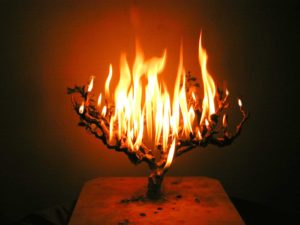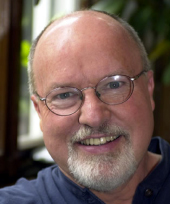“The task of the first half of life is to create a proper container for one’s life
and answer the first essential questions:
- ‘What makes me significant?’
- ‘How can I support myself?’ and
- ‘Who will go with me?’” (Falling Upward, p. 13)
Last month we talked about our names, and about the families who gave us those names. Those families – the people who held us, protected us, and nurtured us – were our very first ‘containers’. This month we talked about the religions we were born into – the religious ‘containers’ that our families lived in.
We began by remembering our parents’ churches and religious backgrounds.
- Some of us had parents who shared a religion and attended church together.
- Some of us had parents who were religious, but mother and father attended different churches.
- A few of us had parents who did not participate in any church.
We remembered our families’ religious practices:
- Attending church with the whole family, or with a parent or grandparent…
- Attending Sunday School or religion classes…
- Praying at home with parents or the whole family….
- Hearing Bible stories, saints’ and heroes’ stories from family members… ….
- Receiving our own Bible as a special gift to treasure and read…
- Special times of transition – Baptism, First Communions, Confirmation, Marriage
We remembered the communities in which our families lived:
- Some of us lived in neighborhoods where almost everyone shared the same religion…
- Some of us attended religious schools in those neighborhoods….
- Some of us went to churches far from our neighborhoods…
- Others of us watched neighboring families go to church, while our own family stayed home…
We remembered the people who nurtured our faith development:
- Family members who shared their faith with us: a father driving us to church every Sunday, a grandmother telling us stories of Jesus…
- Family members who showed their love of God in the way they helped others
- For some of us, nurturing came from outside our family – a neighbor, a teacher, a friend in Al-Anon….
Our parents did not need to keep us safe from daily violence or persistent famine. We were not born in Syria, or Vietnam, or American inner cities. We had protective, nurturing families and churches who accepted us, loved us as best they could, and passed on their faith to us. Yes, some of our memories are negative – parents who were scornful of religion; churches with stifling rules – but on the whole, we had healthy ‘containers’ – people who loved us, people who believed in a loving God.
But, as people shared around our circle, we could also hear echoes of our most painful challenges – the deaths of our children, the deaths of spouses, the painful divorces, the devastating diseases. While no one said this aloud on Tuesday, I’m sure that these challenges brought us to cry out to God: “Why did this happen…
- to my child…?
- to my husband…?
- to us…?
- to me…?”
How were we to know, when those challenges first hit us, that they were also bringing invitations to deeper faith? We had not yet learned that within every burning bush there is another opportunity to meet the God who promises to stay with us through all the pain that life brings.
Thinking of faith as a ‘fire’
Before life brought us those challenges, people in our families – and people in our churches – had already given us a solid foundation in love. For almost all of us in the group, our earliest experiences of God’s ‘fire’ were warm and comforting. As we gathered around those fires, usually with cherished loved ones, our connections – to those people and to the fire – were strengthened. We might think of our early faith as a flame that moved into our hearts from loved ones in our families and in our churches.

The fire of faith in the ‘first half’ of our lives:
as we gather around the fire with loved ones,
we begin to trust God’s presence and love.
But there will always be more to faith than comfort and security, more than experiences of love and joy. That’s why Richard Rohr writes,
“Authentic God experience always ‘burns’ you, yet does not destroy you, just as the burning bush did to Moses… “But most of us are not prepared for such burning, nor even told to expect it….” (see Falling Upward, p. 13-14)

The fire of faith in the ‘second half’ of our lives:
mature faith is trusting that God walks with us,
and that the fire will not consume us.

